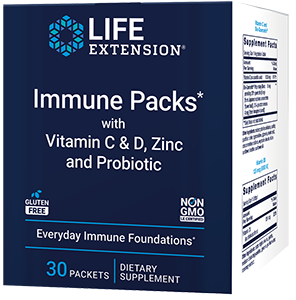
How to Keep Your Immune System Strong
Published: December 2021
Your body’s first line of defense is your strong immune system, but as you age your immune system function starts to decline. That’s why it is important to do everything within your power to help keep your immune system strong and your body protected.
With simple, everyday healthy lifestyle changes coupled with immune-rich foods, beverages, and supplements, your body will be armed and ready for whatever the changing season may bring.
Follow along for a complete guide on how to keep your immune system function strong and healthy.
How can I support my immune system?

Supporting your immune system for optimal wellbeing requires some simple, healthy lifestyle changes to stay strong and healthy all season (and all year) long. Make sure to incorporate these easy-to-do health hacks to keep your immune system ready to fight.
DON’T: Smoke
If you are looking to make positive changes to your overall health and wellness, you’re going to need to quit smoking. Smoking not only has a laundry list of negative health implications, but also wreaks havoc on your immune system health. Chemical compounds found in cigarettes and vaping products interfere with your immune system, causing it to be less effective at fending off challenges.
Smoking also can impact your immune system’s equilibrium and reduce the levels of antioxidants in the bloodstream, including levels of vitamin C. Bottom line, don’t smoke.
DO: Eat well
Did you know that you can help support your immune system health by simply adhering to a nutrient-rich diet? It’s not only true, but delicious, too! Adhering to a healthy Mediterranean diet provides your body with the nutrients it needs to stay strong and function at peak performance.
Pack your plate with healthy food options like fresh fruits and veggies, lean protein, whole grains as well as healthy fats. Steer clear of processed and fried foods, and make sure to incorporate at least eight 8 oz. glasses of water throughout the day to hydrate and flush out toxins.
DO: Exercise
If you’re looking to kick your immune system into high gear, you’re going to have to put in some sweat equity. Moderate exercise is one of the best ways to build up your immune system response and detoxify your lymphatic system to give your body the energy it needs to fight off the challenges that you come into contact with day after day.
Sweat is sweat, so pick an activity you enjoy doing, whether that’s moderate exercise or high-intensity—whatever gets you up and moving will not only greatly benefit your immune system, but the rest of your body as well. Take a walk (or jog) on the wild side, pump some iron at the gym or kick it into high-gear with a sweat-inducing, heart pumping high-intensity interval training (HIIT) class.
DO: Sleep well
There is more to sleep than just your “beauty rest.” Sleep is an important period of rest for your body to recharge and your immune system to be at its best. Getting in quality shut-eye helps strengthen your immune system’s memory and the ability to recognize, react and fight off foreign invaders.
For this process to work properly, it is important to get at least seven to 7 to 9 hours of restful, uninterrupted sleep each night. Make sure you are setting yourself up for sleep success with these helpful nighttime rituals.
DO: Practice good hygiene
A great way to keep challenges away and your immune system strong is to practice good personal hygiene. Doing so can help not only keep you, but also those around you, healthy.
Make sure to wash your hands with soap and water before preparing food and after going to the bathroom. Also, cover your mouth and nose with a tissue or your elbow when needed. Lastly, bandage and wash all wounds and make sure you’re not picking at healing wounds.
Foods for immune system support

Eating a well-balanced diet helps provide your body with the nutrients it needs to stay strong and healthy. But, if you are looking for even more immune system support, make sure to incorporate these healthy foods packed with immune-supporting vitamins and minerals:
Vitamin C foods
An apple a day may keep the doctor a way, but an orange a day will certainly go a long way, too! That’s because vitamin C is famous for its immune supporting properties—and citrus fruits like oranges, grapefruits, limes and lemons are packed with vitamin C. This powerful letter vitamin has been shown to play a role in the production of white blood cells which help fight off immune challenges and keep your body healthy and immune system strong.
Foods rich in zinc
Zinc is a powerful mineral that your body does not naturally produce on its own, so it is important to supplement or consume it through diet for immune system support. Foods rich in this immune system supporting mineral include: oysters, chicken, tofu, hemp seeds, lentils, oatmeal and mushrooms.
Vitamin D foods
Stay strong and shine on with a little help from “the sunshine vitamin,” vitamin D. This immune supporting letter vitamin plays a critical role in your body’s immune response against foreign invaders as well as supporting whole-body health, including strong bones and a healthy heart. While supplementing is an excellent way to meet your daily nutritional needs, packing your plate with some D-licious foods doesn’t hurt either. Salmon, milk, eggs, red meat and even beef liver are all rich in vitamin D and another way to support your immune health.
Explore Our Best Immune Support Supplements
Foods to avoid for the immune system

Eating your way to better immune health is key to keep your body strong and healthy, but at the same time, you’ll want to steer clear of foods that don’t provide nutritional value or immune supporting benefits. Make sure your pantry (and plate) isn’t filled with these not-so-healthy foods:
Processed foods
Boxed and pre-packaged foods that come with a laundry list of ingredients usually fall into this category. That’s because they are filled with hidden sugars, salts and saturated fats that aren’t found in a well-balanced diet, like the Mediterranean Diet. Diets that are high in sugar can cause changes in your gut microbiome and impact the number of “good” bacteria. On the other hand, foods high in salt and packed with saturated fats don’t support a healthy inflammation response. That is not to say you can never have salt or sugar again, but moderation is key and some healthier swaps can help. Instead of white cane or powdered sugar, opt for coconut sugar, monk fruit sweetener, stevia, honey or even dates which are all great natural ways to satisfy your sweet tooth and support your immune system.
Fried foods
Glazed donuts may seem tempting (and taste delicious), but fried foods contain a group of molecules you’ll want to avoid, advanced glycated end products (or AGEs for short). These are formed when sugars react with proteins or fats during high temperature cooking (fried foods) and don’t support healthy inflammation levels. They can even impact your immune system by affecting your gut bacteria balance and your body’s antioxidant levels. So, unfortunately, you’ll have to leave the donuts for Homer Simpson.
Drinks to support immune health

Just as what you eat matters, what you drink can influence the health of your immune system. Make sure to incorporate the following beverages into your diet:
Water
No matter what your health goals may be, water should be part of your wellness routine. This often-underappreciated beverage keeps your organs and vital systems working properly and helps flush out toxins. It is important to consume about eight 8 oz glasses of water to keep you and your immune system healthy.
Green tea
Green tea has been around for thousands of years and is a staple in Asian cultures – and with good reason too. Green tea, packed with polyphenols including EGCG, has powerful antioxidant effects that help support immune health.
Citrus juice
Citrus juice is jam packed with vitamin C which helps support your immune system and fight off foreign invaders. However, it is recommended to drink freshly squeezed, homemade citrus juice as store brands might fill their containers with additives and even sugars that take away from the health benefits. (Unlike water and tea, it also has calories, so sip, don’t guzzle!)
Best supplements for immune system health

If you want to take your immune health one step further, incorporating high-quality immune support supplements into your wellness routine is the way to go. Luckily, when it comes to support, you have options with these herbs, minerals, and vitamins:
- Elderberry—Elderberry extract has a reputation for promoting a healthy immune system that dates back over centuries. We recommend a convenient 5-day formula for fast acting immune support. Elderberry syrup is also popular.
- Zinc—Zinc capsules are an easy addition to your supplement regimen that not only offers immune supporting benefits, but also encourages the healthy function of your cardiovascular and neurological systems, as well as your vision.
- Vitamin D—Especially in the winter, it can be hard to get enough vitamin D, which our bodies make in response to sunlight. A high-quality vitamin D supplement helps protect and support your immune system health and should be taken on a regular basis for overall full body support.
- Vitamin C—If you have tried chugging endless amounts of orange juice to feel your best, you may want to try an easier solution to get the health supporting benefits of vitamin C: a supplement! Vitamin C is one of the go-to letter vitamins for immune health because of its incredible antioxidant power.
- Probiotics— Probiotics are more than just gut friendly bacteria. In fact, these microorganisms help support your immune system in a variety of ways. A specific strand of five different probiotics in Life Extension’s FLORASSIST® Winter Immune Support helps support nose, throat, and respiratory health while encouraging immune cells to respond in a timely manner.
- NAC—N-Acetyl-L-Cysteine or NAC is an easily absorbed nutrient and powerful antioxidant that protects your cells from oxidative stress. In addition to being an immune health superstar, NAC also supports liver, bronchial and respiratory health.
References
- Satokari R. “High Intake of Sugar and the Balance between Pro- and Anti-Inflammatory Gut Bacteria.” Nutrients, May 2020. https://www.ncbi.nlm.nih.gov/labs/pmc/articles/PMC7284805/
- Wang, MX, et al. “Zinc Supplementation Reduces Common Cold Duration among Healthy Adults: A Systematic Review of Randomized Controlled Trials with Micronutrients Supplementation,” Am J Trop Med Hyg, April 2020. https://www.ncbi.nlm.nih.gov/labs/pmc/articles/PMC7356429/
- Wang, S, et al. “Immunomodulatory Effects of Green Tea Polyphenols,” Molecules, June 2021. https://www.mdpi.com/1420-3049/26/12/3755
- van Gorkom GNY, et al. “Influence of Vitamin C on Lymphocytes: An Overview.” Antioxidants (Basel), March 2018. https://pubmed.ncbi.nlm.nih.gov/29534432/
- van der Lugt T, et al. “Dietary Advanced Glycation Endproducts Induce an Inflammatory Response in Human Macrophages in Vitro,” Nutrients, December 2018. https://pubmed.ncbi.nlm.nih.gov/30513810/
- “How to boost your immune system,” Harvard Health Publishing, https://www.health.harvard.edu/staying-healthy/how-to-boost-your-immune-system
- “Zinc – Fact Sheet for Health Professionals,” National Institutes of Health, December 2021. https://ods.od.nih.gov/factsheets/VitaminD-HealthProfessional/
Like what you read?
Please subscribe to get email updates on this blog.





